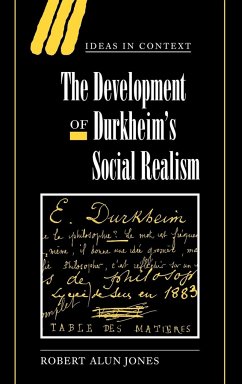
Durkheim's Ghosts

PAYBACK Punkte
52 °P sammeln!
Durkheim's Ghosts is a fascinating presentation of the tradition of social theory influenced by Emile Durkheim's thinking on the social foundations of knowledge. From Saussure and Levi-Strauss to Foucault, Bourdieu and Derrida, today's criticisms of modern politics and culture owe an important, if unacknowledged, debt to Durkheim. These engaging and innovative essays by leading sociologist Charles Lemert bring together his writings on the contributions of French social theory past and present. Rather than merely interpret the theories, Lemert uses them to explore the futures of sociology, soci...
Durkheim's Ghosts is a fascinating presentation of the tradition of social theory influenced by Emile Durkheim's thinking on the social foundations of knowledge. From Saussure and Levi-Strauss to Foucault, Bourdieu and Derrida, today's criticisms of modern politics and culture owe an important, if unacknowledged, debt to Durkheim. These engaging and innovative essays by leading sociologist Charles Lemert bring together his writings on the contributions of French social theory past and present. Rather than merely interpret the theories, Lemert uses them to explore the futures of sociology, social theory, and culture studies. Durkheim's Ghosts offers the reader original insights into Durkheim's legacy and the wider French traditions for the cultural and social sciences. Of special note is the book's new and exciting theory of culture and semiotics. Provocative, scholarly, imaginative and ambitious this book will be invaluable to anyone interested in social theory, culture, and intellectual history of modern times.














